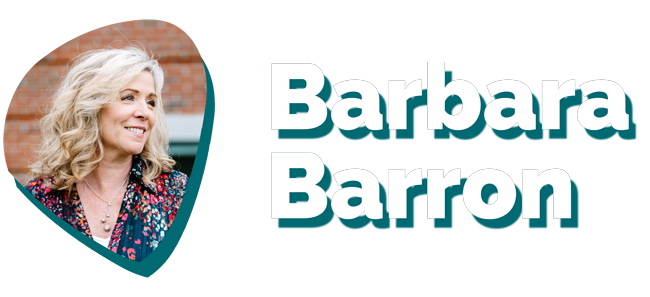by Barbara Barron | Posted November 7th, 2018
I’m not sure what’s in the water, but twice in the past month, I’ve found myself in conversations with clients about a fundraising practice I thought had ended decades ago: phonathons.
Phonathons? Really?!

For those who missed this classic 1980’s practice, a phonathon is a fundraising event in which a handful of volunteers gather in a central location to call donors and prospective donors to ask for their pledge to the Annual Fund. They usually start a few hours after school has ended, during the magic time of day when parents are most inconvenienced. And they are rarely worth the effort you have to invest to pull them off.
So, if the title of this article wasn’t a big enough hint, I can sum up my feelings on phonathons in three little words: Don’t. Do. Them.
Why? Because we’ve evolved past them! We now have plenty of more engaging and effective ways of raising money for our Annual Funds.
Unfortunately, some folks are still stuck in that trap, thinking they must do them to attain “parent participation” (which should never your first goal anyway, dear reader). If your school is wedded to this thinking, let me help you by busting a few myths about this dinosaur of a practice.
But first, let’s examine how, exactly, these things end up failing us. I’ve built my case around three simple points.
Evidence #1 – Phonathons are Intrusive
At a typical phonathon, the volunteers (who are often arm-twisted or otherwise guilted into doing this “good thing for the school”) are provided these vital assets before they get started dialing for dollars:
- some piping hot Folgers coffee
- a selection of gnarly-looking store-bought sandwiches
- a desk with a phone on it
- a packet full of vital data about the people they are supposed to call
Now, I’m going to bypass the coffee and the sandwiches and focus on the fourth point: the packet. Most of what’s inside this packet is vital data, and isn’t problematic, really. Except most volunteers don’t really want to know the details of their peers’ giving history. Kinda skeeves them. And it really brings into question how much confidentiality is truly valued in our advancement programs, now doesn’t it?
Anyway, they get the info. The names and grades of the children attending the school, their parents’ names, perhaps a bit of their giving history (ick), and…
…the home phone number.
Yes, still.
Or perhaps in your case, you provide parents’ cells. Great. Better, but still.
“What the heck is wrong with that, Barbara? We’ve got to get ahold of them somehow!”
Yes, of course, but think about what you’re doing. Phonathon volunteers are instructed to try to make contact with someone, between the hours of 6 and 8pm: inarguably the least convenient and most disruptive hours of the day.
For anyone who has small children, you know what 6 to 8pm is all about. It’s “bath and bedtime.” It’s “pulling my hair out there’s so much going on” time.
For those with teenagers, it’s that insane period when we’re trying to wrangle dinner onto a table that’s covered in homework. Perhaps you’re even struggling to help with your child’s homework, despite being a college-educated adult.
And this, all after a long day of work for everyone.
Ring ring. Ring ring.
“Hi there. I’d love to talk to you about contributing to our school’s annual fund!”
Suffice it to say, terrible timing, right? How does a school not understand the importance of this time of day for its families? It might be excusable if it were a personal call, a genuine attempt to have a meaningful conversation about that family and its experience with the school, or the school’s bright shiny mission and programs.
But it’s not. It’s a call asking for money. At dinner. Ick.

Evidence #2 – Phonathons are Expensive
“Expensive? Nice try, Barbara! I have a small army of volunteers!”
I’m sure you do. Because a phonathon requires volunteers, doesn’t it? A lot of them. But let’s put that to the side for a moment and just look at the numbers here.
In my experience, many people make “unspecified” pledges in that moment: “Yea, sure. We’ll participate but I can’t say exactly how much right now. Just put us down as a yes.” Or the parent who hurriedly agrees to give “the same as last year”. Wow. Huge win there.
I’ve found that most of those kinds of pledges, the ones made to, frankly, just get off the call, go unfulfilled. Sorry, but true. Now it’s on you to do the follow up to convert those into real gifts.
If you tally up the woman-hours it takes to collect the pledges on the back end, you’ll likely find that this fundraising tactic is operating with a very slim profit margin.
Where, dear reader, is the sense in that?
Evidence #3 – Phonathons are Taxing
There’s a prevailing belief that in order to have a successful Annual Fund campaign, things have to be really hard.
Do you think that? Because I don’t.
It’s a lot of work, sure. But it doesn’t have to be hard. It doesn’t have to be draining. In fact, it should be the opposite.
But that’s not how a phonathon works. A phonathon is a boiler room. A high-stress situation that we create for ourselves. And even worse, a high-stress, low impact situation we toss our beloved volunteers into.
Think about the people you use to fill the seats necessary to run a phonathon. I can assure you that the majority of these gentle souls, even as they love our schools, do not want to know what their peers are giving to the Annual Fund.
And now, keeping those same lovely people in mind, ask yourself this: “Don’t you think that most would rather walk on hot coals than ask someone else for money?”
I bet the answer is yes. Forget the fact that we’re taking them away from their own families and dinners for the evening. We’re inviting them to an opportunity to help the school, yes. But we’re also inviting them to a night of being repeatedly dismissed by their peers.
Candidly, no one, not even yours truly, a wonky advancement consultant who loves asking for gifts, wants to do this chore. Yet, we ask our most loyal volunteers to.
Why?

Because, just like so many things that we do, we don’t have a good alternative. Or, perhaps, we do, but we worry that making changes, even smart ones, may offend those who have come to expect certain events.
Honestly, I think what people don’t want to risk giving up are the things they think are helping. Consider running and then sharing the real numbers – the true ROI on this little extravaganza – and I predict minds will be blown.
And then… minds will be changed.
And more good news here is this: I’m not asking you to abandon the idea entirely. I’m only suggesting you change it to something better.
If you must give volunteers calls to make, how about a Thankathon?
So how is a Thankathon different from a phonathon, exactly? Such a good question. I made this little primer, which you can download as a PDF, if you like.
The Thankathon | An Alternative to Your School’s Phonathon
A Thankathon differs from a phonathon in several key ways:
A Thankathon can last longer than a night, and probably should.
Volunteers are instructed to use whatever method of communication feels most appropriate. This could be a phone call, a text, an e-mail, or a tweet.
No giving amounts are shared with volunteers so the thank you is a clean and simple thank you for supporting the school.
Volunteers are instructed to thank only. No side door second asks permitted. Our noble goal is to spread goodwill. To demonstrate genuine appreciation. Stewardship. That’s what builds real community.
Leaving a message is encouraged. Because we are simply thanking, it’s fine to leave a warm and appreciative message. If volunteers wish to leave their own contact details for further conversation, cool. Not required.
And that’s it.
All the while, you as the advancement professional are doing the administrative work of keeping these volunteers engaged and on track. Your job, always, is to receive, process, and respond to every gift with prompt and personal notes of thanks. (PS. I have an article here about what level of “personal” is expected of you.)
So this all leaves one big question on the table. One that I can’t answer, really. Because the answer lies in your hands.
If you make this change, are you leaving money on the table?
I say no. Otherwise, I wouldn’t have proposed it. I have nearly twenty years of experience with this stuff, and can pretty much guarantee that if you eliminate the phonathon – no one is going to actually miss it. Not if you replace it with something better.
And certainly not if you replace a phonathon with an idea that is more respectful of your donors and their confidentiality.
In the end, you might raise more money – nice! – or, a lateral move, the same amount. But what really matters here? I believe what matters is that you’ve improved the culture of giving at your school immeasurably. Your Head, CFO, and Board will all be pleased with you. And your donors, all of them, will thank you.
And when you take a look at next year’s calendar and see the phonathon blissfully absent, I promise you that you’ll be quietly thanking yourself for making the change.
My name is Barbara Barron, and I’m writing this blog to share advice on a profession that I adore.
I’ve been working in the field of Independent School Advancement for nearly 20 years. In that time, I’ve had the pleasure of creating and implementing successful Strategic Fundraising Plans for so many incredible schools. I’ve had the privilege of seeing real growth at The Carey School, Marin Primary & Middle School, Woodside Priory, Crystal Springs, Sage Ridge and others. (Maybe we’ve met!)
Nothing makes me happier than seeing a struggling school start to thrive. My hope is that you’re here to make a positive change as well. I hope my advice can be a part of that change.
Shoot me an e-mail if you want to swap tips, or share your voice here.
Let’s do this, together.



